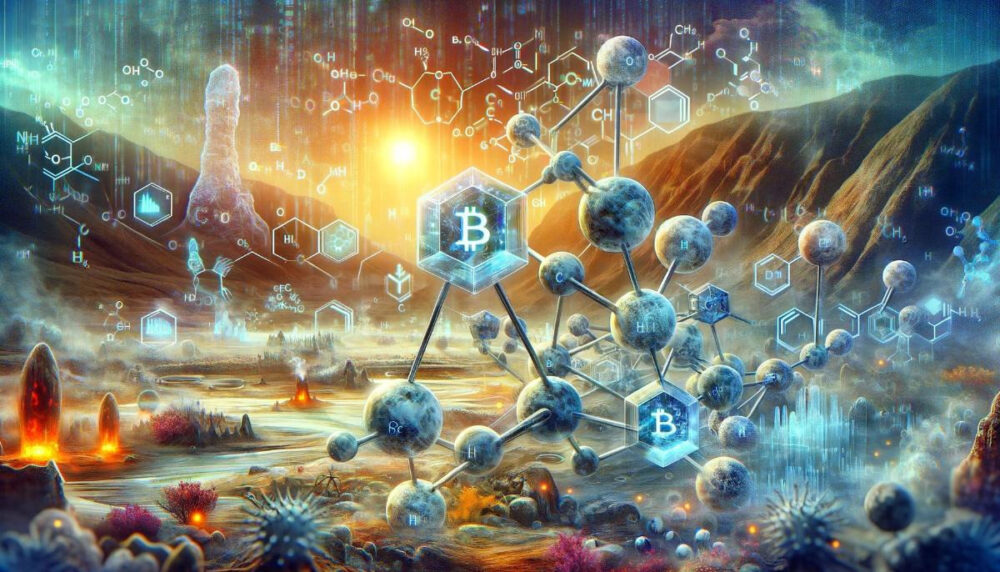Blockchain Technology Applied to Modeling Over 4 Billion Chemical Reactions
A team of chemists led by Bartosz A. Grzybowski from the Institute for Basic Science in Korea and the Polish Academy of Sciences has conducted a unique experiment using blockchain technology to model more than 4 billion chemical reactions. According to the researchers, these reactions played a key role in the origin of life on early Earth. The study was published in the journal Chem on January 24.
The researchers adapted the process of solving complex mathematical problems—commonly used in cryptocurrency mining—to the task of calculating chemical reactions. Their goal was to determine how primitive forms of metabolism could have arisen on Earth without the involvement of enzymes.
The NOEL Project: Building a Network of Early Life
As part of the NOEL (Network of Early Life) project, the team created an extensive network of chemical reactions. They began by selecting basic molecules believed to have existed on early Earth, including water, methane, and ammonia. The scientists then developed rules governing possible reactions between different types of molecules, translating these rules into a language that computers could understand.
Using blockchain principles, the team performed calculations for these reactions within the large-scale network they had built. Both chemists and computer science experts from the company Allchemy participated in the project. To process the data, they used the Golem platform, which coordinates computations across hundreds of computers worldwide and rewards participants with cryptocurrency for their computing time.
Key Findings and Scientific Impact
Initially, the NOEL network encompassed over 11 billion chemical reactions. After thorough analysis and filtering, the number of potentially possible reactions was reduced to 4.9 billion. During the study, the researchers identified traces of already known metabolic processes and synthesized 128 simple biotic molecules. These findings shed light on the complex processes of early prebiotic chemistry and help us better understand how life might have originated on Earth.
One particularly interesting discovery was that, among the billions of reactions considered, only a few demonstrated the ability for “self-replicating” behavior—the capacity for molecules to create copies of themselves. Bartosz Grzybowski emphasized, “Our results show that self-amplification in the presence of only small molecules is a rare phenomenon.” This observation challenges previous theories about the key role of self-replication in the origin of life.
Democratizing Science Through Blockchain
Grzybowski sees not only scientific value in this approach but also the potential to democratize science. Thanks to blockchain, complex calculations become accessible even to small universities and research centers, especially in developing countries.
In conclusion, Grzybowski expressed optimism about the future, stating, “I hope that people in computer science can figure out how we can tokenize cryptocurrencies in a way that benefits global science.”



